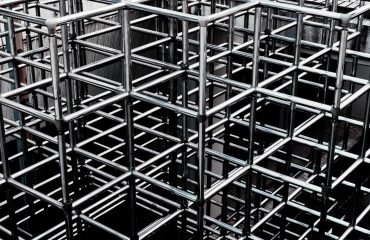body { font-family: sans-serif; line-height: 1.6; }
h1, h2, h3 { color: #333; }
img { max-width: 100%; height: auto; }
Oil refineries are complex and hazardous environments, demanding materials that can withstand extreme pressures, temperatures, and corrosive chemicals. Steel pipes form the backbone of these facilities, playing a critical role in transporting various fluids and gases throughout the refining process. This post delves into the vital role of steel pipes in oil refineries, examining their selection, properties, applications, and future trends.
1. Material Selection: Choosing the Right Steel for the Job
The selection of steel pipes for oil refineries is a critical decision, directly impacting safety, efficiency, and the lifespan of the infrastructure. The choice depends on several factors, including the transported fluid, operating temperature and pressure, and the corrosive environment. Common steel grades include:
- Carbon Steel: Widely used due to its cost-effectiveness and good strength. However, its susceptibility to corrosion limits its application to less aggressive environments.
- Alloy Steel: Offers enhanced strength, corrosion resistance, and high-temperature capabilities, making it suitable for handling harsher chemicals and higher pressures. Specific alloys like chromium-molybdenum steels are frequently used.
- Stainless Steel: Provides superior corrosion resistance, particularly in environments containing sulfur compounds and saltwater. Different grades of stainless steel offer varying degrees of corrosion resistance and strength.
- Duplex Stainless Steel: Combines the strength of austenitic stainless steel with the corrosion resistance of ferritic stainless steel, making it ideal for demanding applications.
The selection process often involves rigorous material testing and analysis to ensure the chosen steel grade meets the specific requirements of the refinery’s operating conditions.
2. Manufacturing Processes and Quality Control
The manufacturing of steel pipes for oil refineries adheres to stringent quality control standards. Common manufacturing methods include:
- Seamless Pipes: Produced by piercing a heated steel billet, resulting in a homogenous, seamless structure with high strength and resistance to pressure.
- Welded Pipes: Created by joining two steel plates or strips through welding. While potentially less expensive, welded pipes require rigorous testing to ensure weld integrity and prevent leaks.
Quality control involves multiple stages, including: chemical composition analysis, dimensional checks, hydrostatic testing to verify pressure resistance, and non-destructive testing methods like ultrasonic testing to detect flaws. Compliance with industry standards such as ASME (American Society of Mechanical Engineers) and API (American Petroleum Institute) is mandatory.
3. Applications in Refinery Processes: From Crude to Product
Steel pipes are ubiquitous throughout the entire oil refining process. Their applications include:
- Crude Oil Transportation: Large-diameter steel pipes transport crude oil from storage tanks to processing units.
- Fractionation Columns: Smaller-diameter pipes within fractionation columns separate crude oil into various fractions based on boiling points.
- Heat Exchangers: Steel pipes are integral to heat exchangers, transferring heat between different process streams.
- Reactors and Catalytic Converters: Specialized steel pipes are used in reactors and catalytic converters, where chemical reactions transform crude oil fractions into refined products.
- Product Transfer and Storage: Steel pipes transport refined products like gasoline, diesel, and jet fuel to storage tanks and loading facilities.
The specific type of steel pipe used varies depending on the application and the properties of the fluid being transported.
4. Corrosion Resistance and Protective Measures
Corrosion is a significant concern in oil refineries due to the presence of various corrosive substances. To mitigate corrosion, several protective measures are employed:
- Material Selection: Choosing corrosion-resistant steel grades, as discussed earlier, is crucial.
- Coatings: Applying protective coatings like epoxy resins or zinc galvanizing enhances corrosion resistance.
- Corrosion Inhibitors: Adding chemicals to the transported fluids can inhibit corrosion processes.
- Cathodic Protection: This electrochemical method protects steel pipes from corrosion by applying a negative electrical potential.
- Regular Inspection and Maintenance: Regular inspections and maintenance programs are essential to identify and address corrosion issues before they escalate.
Effective corrosion management is critical to ensuring the safety and longevity of the refinery’s infrastructure.
5. Safety Standards and Future Trends
Safety is paramount in oil refineries, and steel pipes play a significant role in ensuring safe operation. Adherence to strict safety standards, including proper installation, regular inspection, and maintenance, is mandatory. Future trends in steel pipe technology for oil refineries include:
- Advanced Materials: Research into new steel alloys with enhanced strength, corrosion resistance, and high-temperature capabilities is ongoing.
- Smart Pipes: Integrating sensors and monitoring systems within steel pipes to detect leaks, corrosion, and other potential problems in real-time.
- Improved Manufacturing Techniques: Advances in manufacturing processes aim to improve pipe quality, reduce costs, and enhance efficiency.
- Sustainable Practices: Increased focus on using recycled steel and reducing the environmental impact of pipe manufacturing and disposal.
The continuous development and implementation of these advancements will contribute to safer, more efficient, and environmentally friendly oil refining operations.
Tags: Steel pipes, oil refinery, corrosion resistance, ASME, API, refinery equipment




